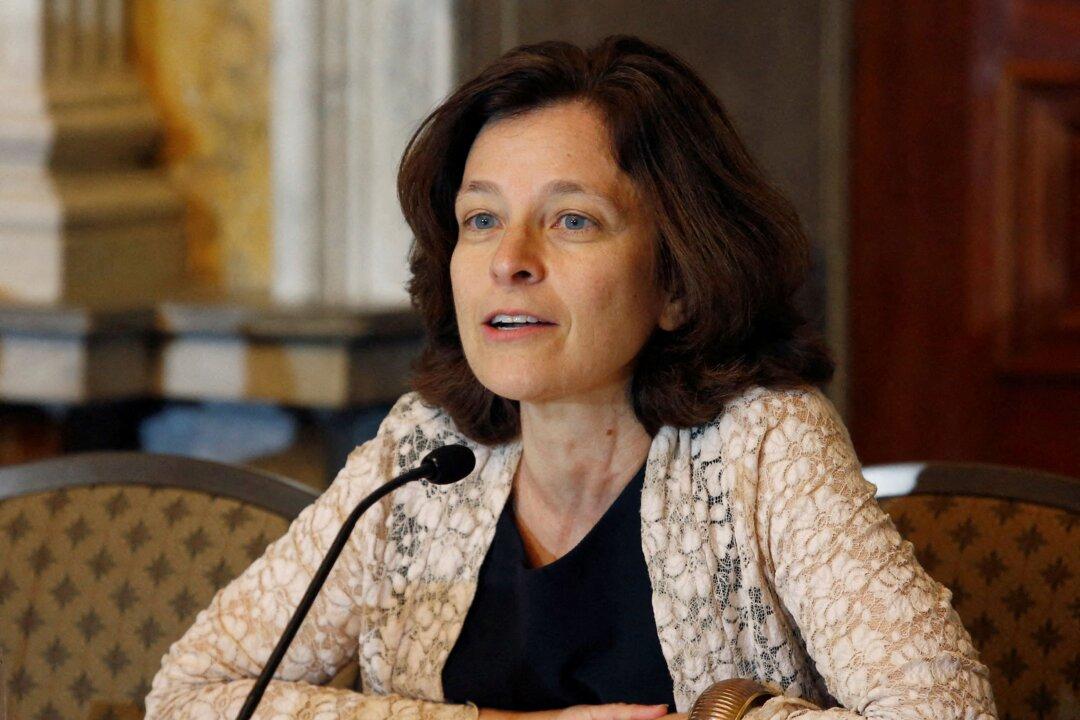The U.S. Chamber of Commerce has sent a letter to congressional lawmakers raising concerns about Sarah Bloom Raskin, President Joe Biden’s nominee as the Federal Reserve’s vice chair for supervision, with the lobby group citing her calls for federal regulators to pull financing from the fossil fuel industry.
Tom Quaadman, executive vice president of the Chamber’s Center for Capital Markets Competitiveness, said in the Jan. 27 letter that Raskin’s past actions and comments on several fronts have raised concerns among the business community and should be scrutinized by the Senate Banking Committee.





